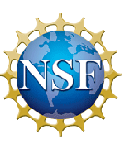-
Michael Honig - Dynamics of Macro-economic Credit Expansions and Contractions
-
Thursday, November 17, 2016 2:00 PM - 3:00 PM EST
LWSN Rm. 1142
Purdue University
Michael Honig
Department of EECS
Northwestern UniversityMany macroeconomic models predict that monetary policy decisions, such as interest rate adjustments by a central bank, have only short-term (transient) effects on real economic activity. A foundational assumption in those models is that agents are continuously optimizing and can, in principle, anticipate and immediately compensate for such policy shifts. Transient effects in such models stem from unexpected disturbances, private information, or frictions in price adjustments.
We highlight an alternative source of transient effects, the inertia associated with an aggregate loan portfolio held by the banking sector, and study its effects. Specifically, lags and rigidities in loan agreements that make up the portfolio limit the speed of response to policy shifts or other shocks\u2014even with forward looking agents. When embedded in a model economy with different sectors and monetary flows as state variables, the dynamic effects of credit expansions and contractions are shown to be asymmetric: while expansions generally exhibit smooth transitions, contractions with downward wage friction cause widespread unemployment and a loss in production. The impact increases with the sizes and durations of loans in the loan portfolio. We also examine the dynamic effects of inaccurate information (or beliefs) about the underlying state variables of the model.
Joint work with Ben Honig, John Morgan, and Ken Steiglitz.
Bio:
Michael Honig is a Professor in the Department of Electrical Engineering and Computer Science at Northwestern University. Prior to joining Northwestern he worked in the Systems Principles Research Division at Bellcore in Morristown, NJ, and at Bell Laboratories in Holmdel, NJ. He received the B.S. degree in electrical engineering from Stanford University in 1977, and the Ph.D. degree in electrical engineering from the University of California, Berkeley, in 1981. He has served as editor and guest editor for several journals, and as a member of the of the Board of Governors for the IEEE Information Theory Society. He is a Fellow of IEEE, the recipient of a Humboldt Research Award for Senior U.S. Scientists, and the co-recipient of the 2002 IEEE Communications Society and Information Theory Society Joint Paper Award and the 2010 IEEE Marconi Prize Paper Award.


